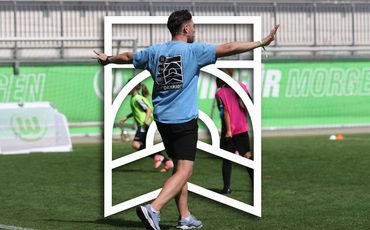The Role of Parents in Sport: Partners in the Journey
Parents play a vital and often underestimated role in their children’s sporting lives. While coaches, teammates, and support staff may come and go, parents remain a constant presence throughout a child’s sporting journey. Far from being a barrier, parents are one of the greatest resources available to both children and coaches.
From introducing children to sport and encouraging their participation, to providing emotional support, transportation, and funding, parents are deeply involved in every step. Their understanding of their child’s personality, needs, and emotions makes them uniquely positioned to support their development and enjoyment in sport.
Why Coaches Should Work With Parents
When coaches and parents work together, children benefit from a united support system. However, parents often face challenges—balancing work, family life, and the demands of sport—while also trying to understand how best to support their child. Coaches can play a key role in guiding parents through this process.
Importantly, every parent is different. They bring unique experiences, expectations, and motivations. That’s why a one-size-fits-all approach won’t work. Instead, coaches should aim to create a “parent positive” environment—one where parents feel welcomed, valued, and informed.
Creating a Parent Positive Environment
Here are three key strategies to help coaches build strong, supportive relationships with parents:
1. Proactively Focus on Communication
Open, honest communication is the foundation of any strong relationship. Coaches should:
- Build time into sessions to speak with parents.
- Offer regular opportunities for drop-in chats or meetings.
- Listen actively and work together to solve problems.
This not only improves the child’s experience but also enhances the coach’s own satisfaction and effectiveness.
2. Acknowledge and Value Parents’ Contributions
Without parents, youth sport wouldn’t exist. Coaches should:
- Thank parents regularly for their support.
- Organise social events to build community.
- Invite parents to contribute their skills or help with team activities.
- Recognise parents as experts on their own children.
3. Commit Time to Learning About and Informing Parents
Understanding the challenges parents face—financial, logistical, or emotional—can help coaches offer better support. Sharing practical strategies like carpooling or creating parent networks can make a big difference.
Equally, parents need to understand the coach. Sharing your coaching philosophy, expectations, and personal commitments helps manage expectations and reduce misunderstandings.
Final Thoughts
Creating a strong partnership with parents takes time and effort, but the rewards are worth it. By focusing on communication, showing appreciation, and sharing information, coaches can build a positive environment where children, parents, and coaches all thrive.
Communicate. Acknowledge. Inform. These three steps can transform the sporting experience for everyone involved.
Watch the full video below
Comments
Related Pages


